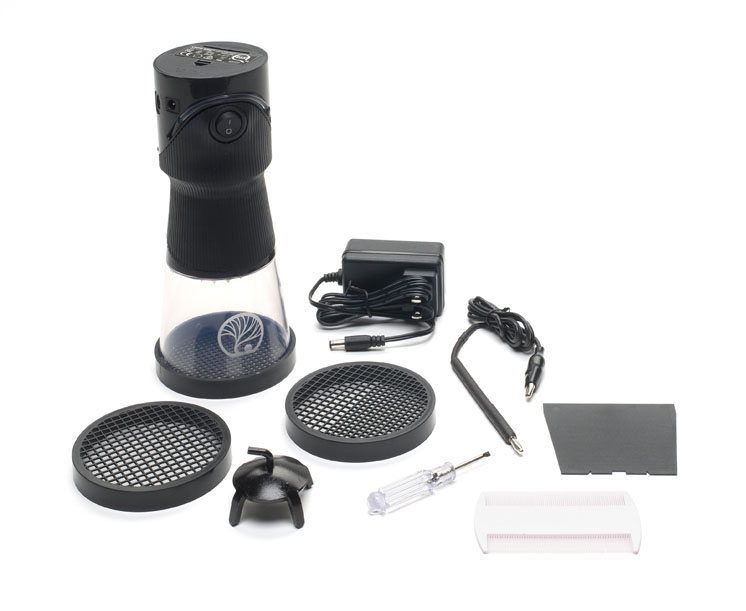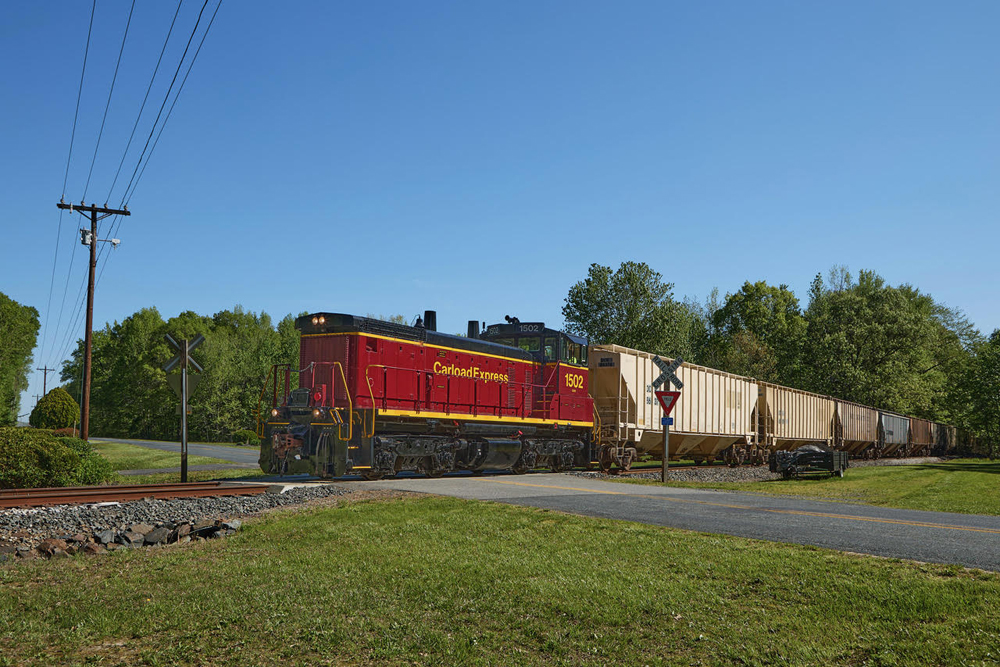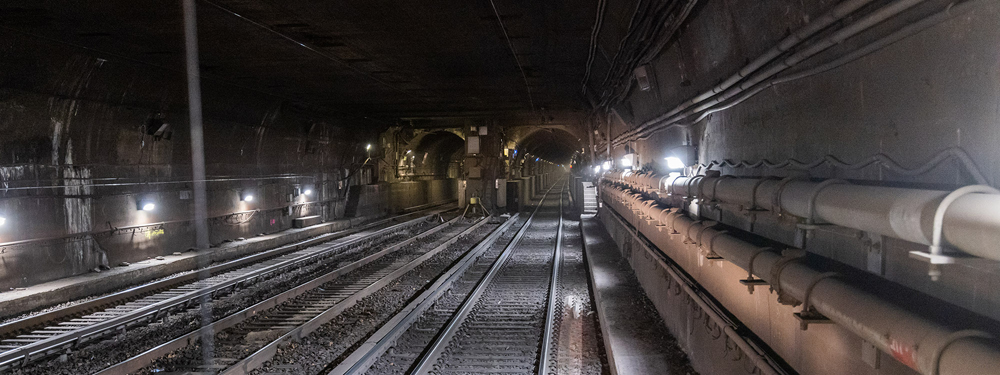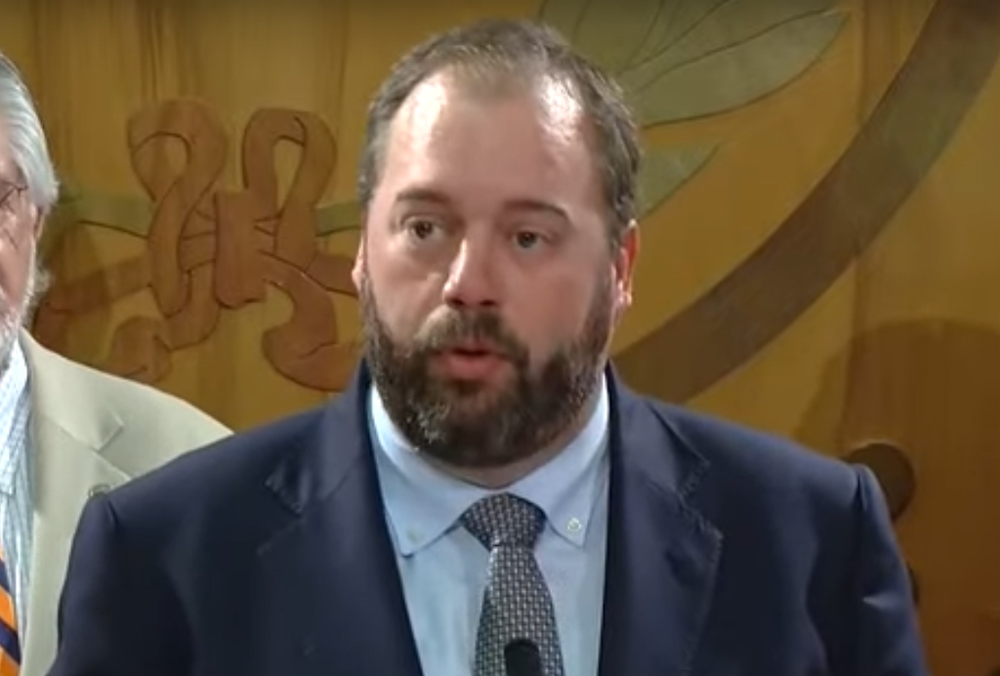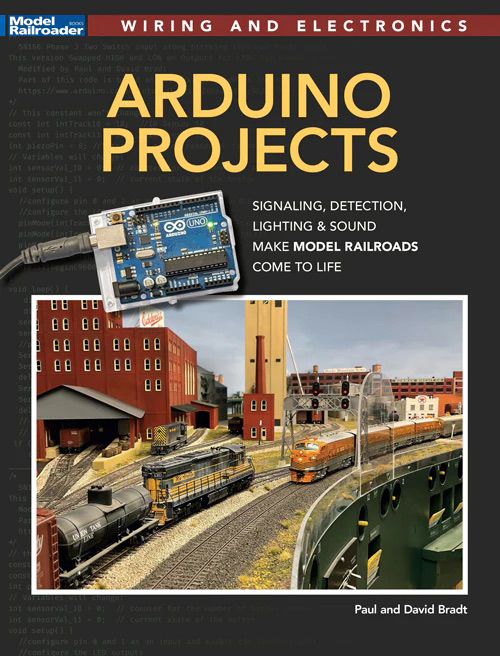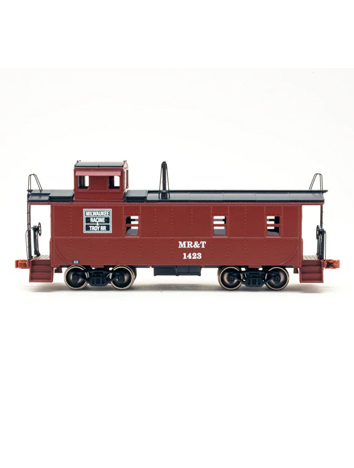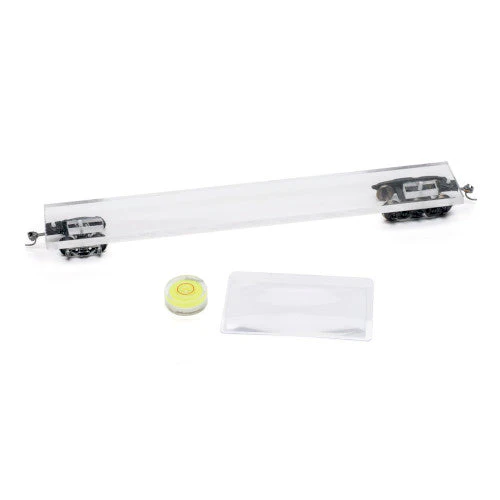Woodland has expanded its Field System of scenery materials, adhesives, and tools with the Static King, an easy-to-use static grass applicator. The gadget has a clear plastic hopper with interchangeable screens and a removable divider for applying different colors and/or lengths of static grass simultaneously. It runs on a 9V battery, but a separate, optional plug-in power supply is also available (part no. FS641, $19.99).
Static grass is made of fine rayon fibers that come in a variety of colors from dead-grass tan to vibrant green. The applicator works by applying a static electrical charge to the fibers, which makes them repel each other. A cord leading from the applicator to an anchor planted in adhesive spread on the terrain gives the glue a similar charge. When the charged fibers are shaken onto the surface, the like charges cause the fibers to stand on end, like real grass. The effect can be quite realistic for modeling overgrown fields, weed patches, tufts of grass, and wetland cattails.
In addition to the Static King and an assortment of static grass, Woodland (formerly known as Woodland Scenics) also offers Static-Tac, an adhesive made for static grass (part no. FS644, $9.99 for 12 ounces); Tuft-Tac, a repositionable adhesive for making peel-and-glue grass tufts (FS643, $8.99 for 4 ounces); and Spray-Tac, a mist-on glue for adding floral ground foam, seed tops, or additional fibers to a completed static grass field (FS645, $7.99 for
8 ounces).
What you get. Inside the case is a flared plastic cylinder, about 8 inches tall and 3 inches or so in diameter. Two-thirds of it is black plastic, textured with ridges for better grip, with a power switch, two arched fiber-optic power indicator lights, and sockets for the grounding cable and an optional power supply. The hopper is clear plastic with a metal “crown” at the base (wonder if that’s why it’s called Static King?) and a black plastic grille capping the end.
The device comes with three interchangeable grilles: a fine grid for use with short grass fibers, a coarse one for longer fibers, and a third that’s divided half-and-half. This is meant for use with a plastic insert that divides the hopper in two, for applying two different lengths of static grass.
Also included are a 3.5-foot grounding wire with clip, a metal grounding anchor, a thatching comb, and a small screwdriver for changing the grille.
I’ve seen ads for plain plastic shakers that claim to impart a static charge just by shaking the bottle. For comparison’s sake, I decided to try applying some static grass without the power. Sure enough, it laid flat. I then turned the Static King back on and shook on more fibers, which stood up. The electric charge, not the shaker, is what doesthe job.
I used the provided four-footed grounding anchor for my first test. Since my terrain was uneven, only three of its feet contacted the glue, but that was sufficient. I also tested how the Static King performed when its grounding wire was clipped to an old-fashioned T-pin stuck into the glue. Despite the pin’s smaller area of electrical contact, it also worked.
When finished, the directions recommend wiping out the hopper with a dry, soft paintbrush. Don’t rinse it; you don’t want to get moisture into the electronics.
Give it a try. Modelers who wanted to try static grass used to have to have to choose between expensive applicators or homebrewed gadgets. For the price of a few HO scale freight cars, Woodland’s Static King puts more realistic ground cover within any modeler’s reach.
Price: $99.99
Manufacturer
Woodland
P.O. Box 98
Linn Creek, MO 65052
woodlandscenics.com
Features
- Battery-powered static grass applicator (plug-in power supply sold separately, part no. FS641, $19.99)
- Fine, coarse, and divided screens
- Grounding wire, 42″ long
- Metal grounding anchor
- Plastic thatch comb
- Power indicator light strips
- Removable hopper divider
- Small screwdriver
- Works with 2mm-12mm staticgrass fibers





